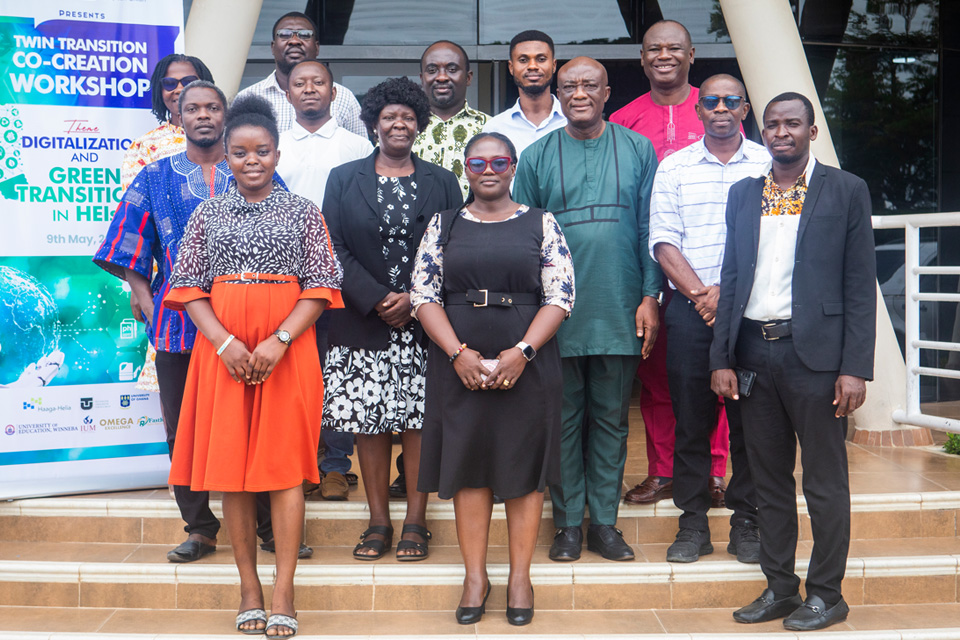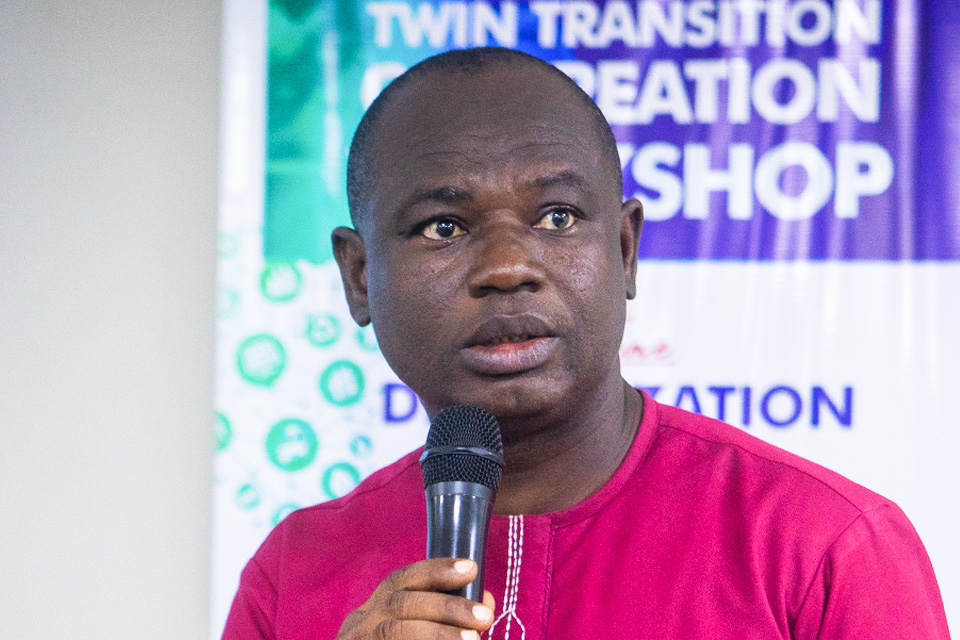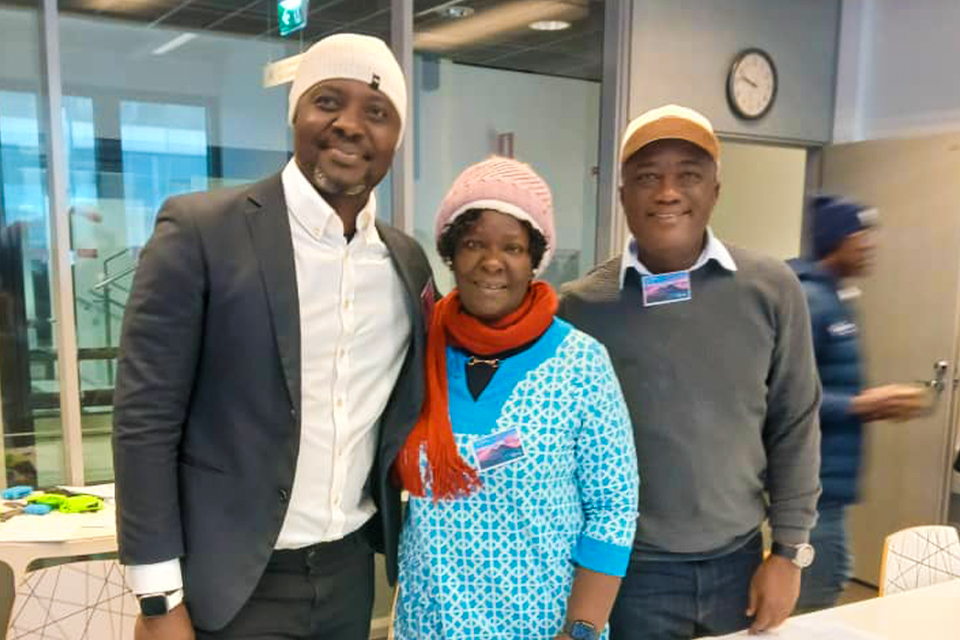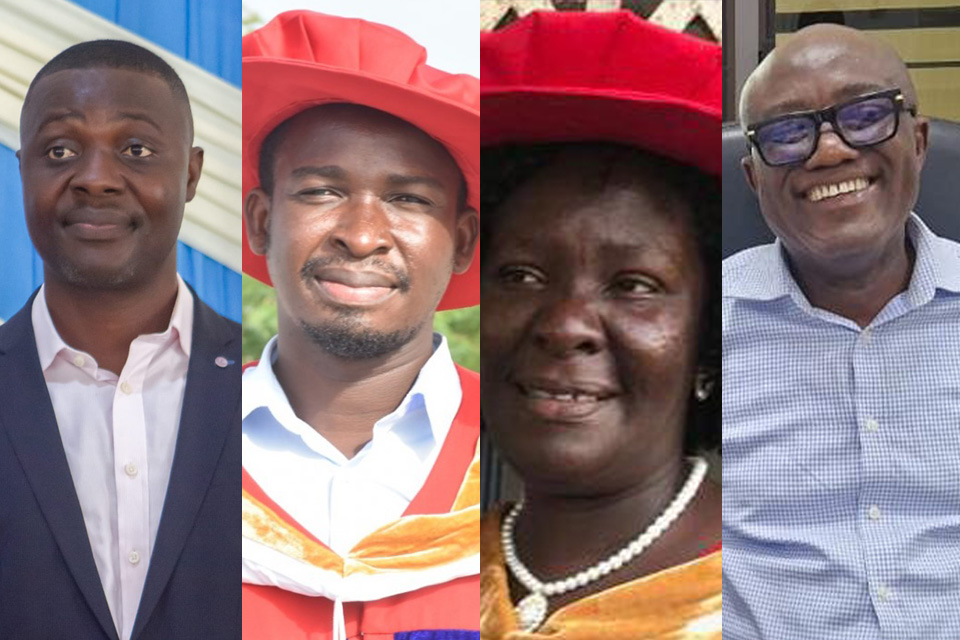UEW Hosts Co-Creation Workshop on Digitalisation and Green Transition

The University of Education, Winneba (UEW) has hosted a high-impact co-creation workshop aimed at redefining higher education through the integration of sustainable digitalisation and green practices in Ghana.
The workshop, orgainsed under the TeProD Project (Teacher Professional Development with Twin Transition in Sub-Saharan Africa), was held on Friday, 9th May, 2025, at the Students Centre Seminar Room III and via virtual mode. It brought together renowned scholars, policymakers, industry players and students to deliberate on the Twin Transition agenda—an intersection of digital transformation and ecological sustainability.

Prof. Ruby Hanson, professor of chemistry at UEW, outlined in her welcome address the urgent need for educational institutions to take proactive roles in tackling the global climate crisis while embracing the rapid pace of digital transformation. She emphasised that the university’s role is not only to educate but also to lead national discourse and innovation in sustainability and technology.
"This workshop is more than a meeting of minds. It is a launchpad for reshaping education, research and governance through digitally enabled, environmentally conscious practices," she declared.
Prof. Ruby Hanson underscored the workshop’s alignment with key global priorities, particularly the United Nations Sustainable Development Goals (SDGs). She spotlighted SDG 4 (Quality Education), SDG 9 (Industry, Innovation and Infrastructure) and SDG 13 (Climate Action) as central to the university’s vision and the workshop's objectives.
The workshop also featured in-depth presentations from five speakers, each emphasising the urgency and opportunity of aligning higher education with green and digital goals.

Dr. Daniel Danso Essel laid the intellectual foundation by unpacking the concept of the Twin Transition. He highlighted that digitalisation and green transition are not competing priorities but complementary paths towards relevance and responsibility in modern education. "This is not about choosing between technology and sustainability—it’s about using technology to drive sustainability," he explained.
Dr. Essel called on institutions to embrace human-centred digitalisation and ecological modernisation by embedding sustainability and digital literacy across curricula.

Prof. Delali Dake examined global and institutional policy frameworks such as the European Green Deal, the UN SDGs and the EU Digital Compass 2030. He noted that while Europe leads in setting targets for carbon neutrality and digital inclusion, Africa and Ghana must urgently contextualise and implement similar models. "Digital tools support over 70% of the SDGs—this shows that green and digital goals are inextricably linked," he remarked.
Prof. Dake called on Ghanaian universities to adopt strategic planning and continuous evaluation to localise these global frameworks.

Prof. Sunday Olaleye urged participants to move from passive discussion to active co-creation. "We must create together—professors, students, policymakers and the community—to bring digital innovation and environmental stewardship into our everyday actions," he said.
He championed digital storytelling, virtual learning and climate-focused curriculum reform as tools to promote sustainability in education. "This is not just about ideas; it is about impact," he added.

Dr. Boniface Yaayin highlighted practical applications through smart city models, energy optimisation and sustainable mobility. Using examples such as smart waste systems, AI-driven energy management and sensor-enabled public services, he demonstrated how institutions can embrace digital tools to reduce emissions and boost efficiency. "We must ask ourselves—how smart are our lecture halls, our transport systems, our campuses? The time to act is now," he stated.

Dr. Florence Esi Nyieku provided a progress update on UEW’s readiness and commitment. She detailed ongoing projects such as solar-powered lighting, smart waste bins, remote environmental sensing tools and integration of sustainability in academic programmes. She also acknowledged challenges like uneven ICT access, data privacy concerns and digital literacy gaps, calling for stakeholder engagement and leadership commitment. "The transition requires not just infrastructure but people, policies and purpose," she stressed.
The workshop emphasised the role of UEW as a thought leader and catalyst for national transformation. Participants unanimously agreed that higher education institutions must go beyond traditional roles to champion climate resilience, digital inclusion and green innovation.












